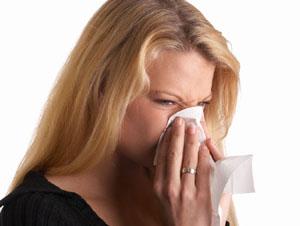Allergic reaction to climate change
According to the American Academy of Allergy Asthma and Immunology, August is the start of ragweed season – bringing itchy eyes to 36 million Americans.
Alaskans are among the first to feel the effects and experts say the "gesundheit" problem there is getting worse due to climate change. In Alaska, temperatures have risen four times as fast as the rest of the planet. Not only does the longer growing season mean escalating pollen counts, it also means biting bugs and stinging insects are having a field day.
Jeffrey Demain has felt the pain — hee’s founder and director of the Alaska Allergy, Asthma and Immunology Center in Anchorage: " … we certainly have seen more intense pollen cycles, both in number of pollen levels as well as duration of the cycles over the past few years. I would say our tree pollen cycle has increased by three weeks, and the same with our grass pollen cycle."
" … we’ve been following the changes in climate – now, changes in climate not only include temperature warming during the summer, but also higher winter temperatures – and that actually may be the more important one. But, in addition to that, with these temperatures and more precipitation, we’re seeing the migration of alpine tundra. So it’s actually disappearing, and it’s being recaptured by other flora and fauna, which is gonna create more grasslands, more forests, and actually, probably, relocate and redistribute certain insect species."
According to Demain, the medical implications of climate change can be severe and global in the future:
"I do believe we’re gonna see an increase in severity of simple allergic rhinitis – which is actually very significant, and it affects people’s quality of life. Along with that, asthma occurs in at least a third of patients that have allergies, so I believe we’re gonna see intensification of asthma, especially patients that have pollen sensitivities.
"We’re already seeing a significant impact with some of the redistribution of insects and people have allergic reactions and requiring more aggressive therapy for that. In fact, we’re now seeing fatal events as a result of it.
"And I think beyond that – if you step back again a little further – we’re looking at, what else is impacted by climate change? There’s very, very, very good evidence that we’re seeing dramatic increases in malaria, dengue fever, viral encephalitis throughout the world, even as a close as Mexico and South America. And these are directly impacted by climate change. Even things like hantavirus in the southwestern United States, as well as plague in the southwestern United States –and West Nile virus – all of these are probably a reflection of shifts in the environment and shifts in climate."
Hosted by Steve Curwood, "Living on Earth" is an award-winning environmental news program that delves into the leading issues affecting the world we inhabit. More "Living on Earth.
